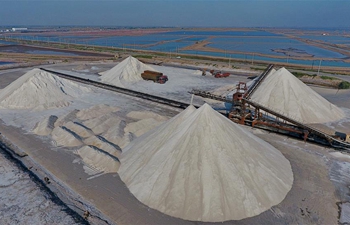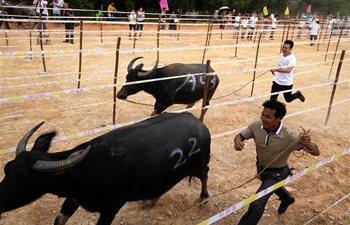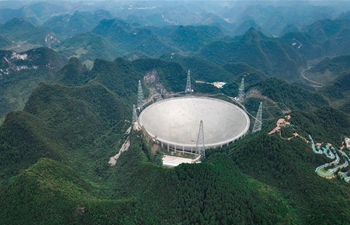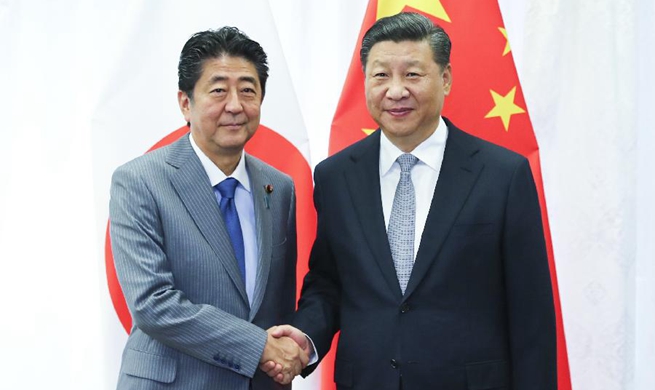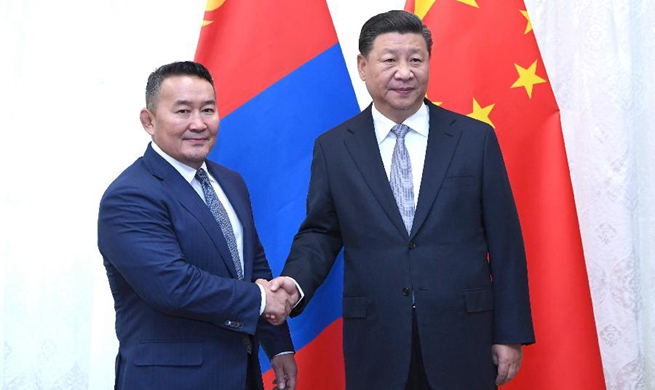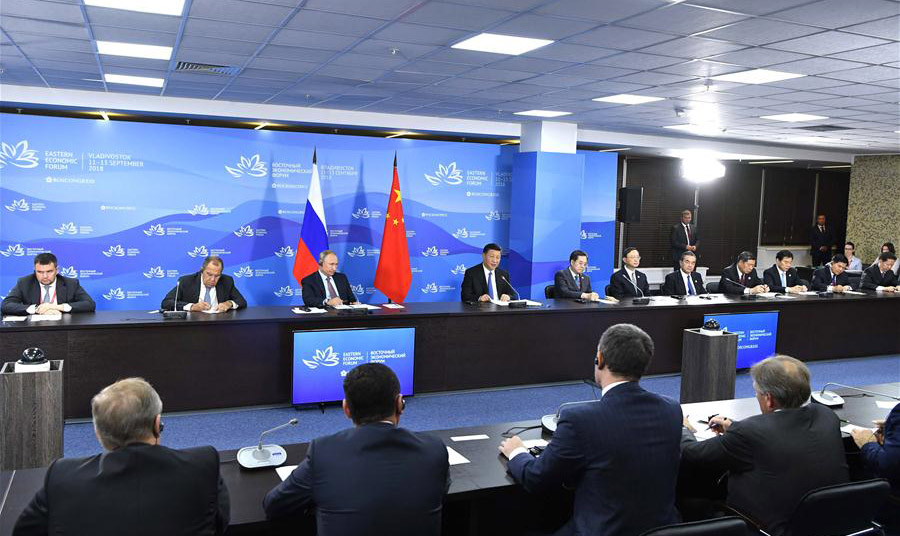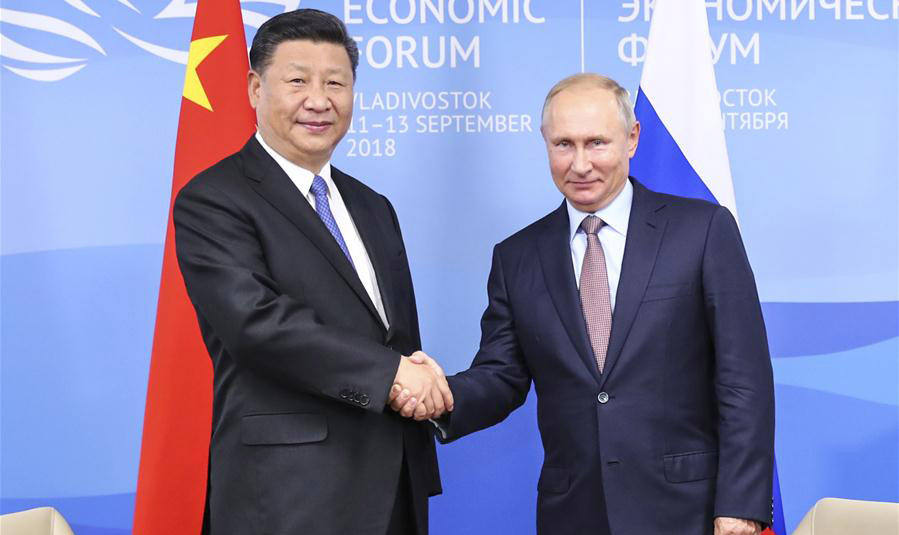by Keren Setton, Chen Wenxian
JERUSALEM, Sept. 12 (Xinhua) -- The Israeli Defense Forces (IDF) unveiled the construction of a wall along the country's border with Lebanon in earlier September, as part of the preparations Israel is making ahead of a possible conflict.
The new fence is set to replace a standard border fence that has been in place for years. The new barrier is being contested by Lebanon who says Israel is dipping into its territory.
Officials in Israel have denied the claims.
According to the IDF, the construction will be completed in two years at the cost of hundreds of millions of U.S. dollars.
The border with Lebanon is volatile. Israel invaded southern Lebanon in 1982 in an attempt to thwart attacks coming from the territory. In 1985, Hezbollah, an Islamic militant organization, was formed as a guerilla force aimed at ousting Israeli forces.
Israel withdrew from southern Lebanon in 2000, a result of public outcry within the country in light of hundreds of soldiers who were killed throughout the years. For Hezbollah, this was a victory, but still, it vowed to continue resistance to Israel.
In 2006, a war between the two sides erupted after Hezbollah abducted two Israeli soldiers in a cross-border raid. The new barrier is supposed to prevent similar incidents.
The war was a game changer for both sides. Israeli forces all but obliterated Hezbollah-controlled territories in southern Lebanon and Israel was exposed to intense Hezbollah fire power in areas which were previously thought to be out of range for the guerilla organization.
The premise is that a new conflict between the sides is only a matter of time and it will be much deadlier than the last one.
Currently, Hezbollah is heavily involved in the Syrian civil war but once that subsides, it will invest more in conflict with Israel. The organization is believed to have sent thousands of militants to help stabilize the regime of Syrian President Bashar Assad.
Israeli military officials have been quoted in the media as saying they are carefully studying Hezbollah's involvement in Syria. The lessons Hezbollah learned there will most likely be implemented in future warfare with Israel.
"It is about capabilities that we know Hezbollah has as well as the spoken intentions to do so and the desire to infiltrate into Israel and to kill Israeli civilians and terrorize Israeli communities," said Jonathan Conricus, the foreign media spokesman for the IDF.
"This is why we are adding the layer of defense for our communities," he added.
Since the end of the month-long war in 2006, there has been relative calm between Israel and Hezbollah, with isolated border incidents. But there is a lot of tough talk between the sides.
Israel is also believed to be behind hundreds of airstrikes against Hezbollah arms convoys in both Lebanon and Syria. While there have been casualties in these strikes, they have not sparked a broader conflict yet.
For the most part, Israel has remained silent about its role in the attacks, neither confirming nor denying participation.
But last week, Israeli Prime Minister Benjamin Netanyahu opened his weekly cabinet meeting by referring to threats from Syria, Lebanon and Iran with a strong hint directed at his neighbors.
"Israel is determined to prevent Iran and its proxies from establishing a military presence in Syria," said Netanyahu. "We are taking strong actions against these attempts and against attempts to produce precision weaponry, in all arenas, near and far."
Iran, Israel's arch enemy which has called for the destruction of the Jewish state repeatedly, is one of Hezbollah's main backers, not only ideologically, but also by significant funding and arms supplies.
Israeli intelligence officials believe that Hezbollah's capabilities have grown exponentially since 2006. The barrier is just one of the steps Israel is taking in preparation for a future, apparently inevitable, conflict.
The building of the new barrier is not without controversy. With Lebanon saying Israel is infringing on its sovereignty, Israel has had to defend itself.
Tomer Gilad, IDF Liaison Officer to UNIFIL (United Nations Interim Force in Lebanon), denied the claims when speaking to journalists touring the barrier construction site.
"The blue line is the only recognized line dividing between Israel and Lebanon and we are working in accordance with that," he said. "So there's no real basis for any claim."
The UNIFIL force has been in place since 1978, manning a demilitarized zone between the two countries. There are over 10,000 UN troops on the ground.
Spokespeople for UNIFIL have backed Israel's position, saying there has been no violation of Lebanese sovereignty due to the construction.
In the end of August, when the UN Security Council (UNSC) extended the mandate of the peacekeeping force, it warned of renewed conflict in the area if tensions were to boil over.
Israel has not always been happy with the UN presence on the border. Despite the backing it received on the sovereignty matter, differences remain.
"UNIFIL and the UN in general provide a very important role here on the border. However, we believe that UNIFIL could do more," Gilad told reporters.
For now, both sides are preparing for a future war, with uncertainty only looming about its timing.





